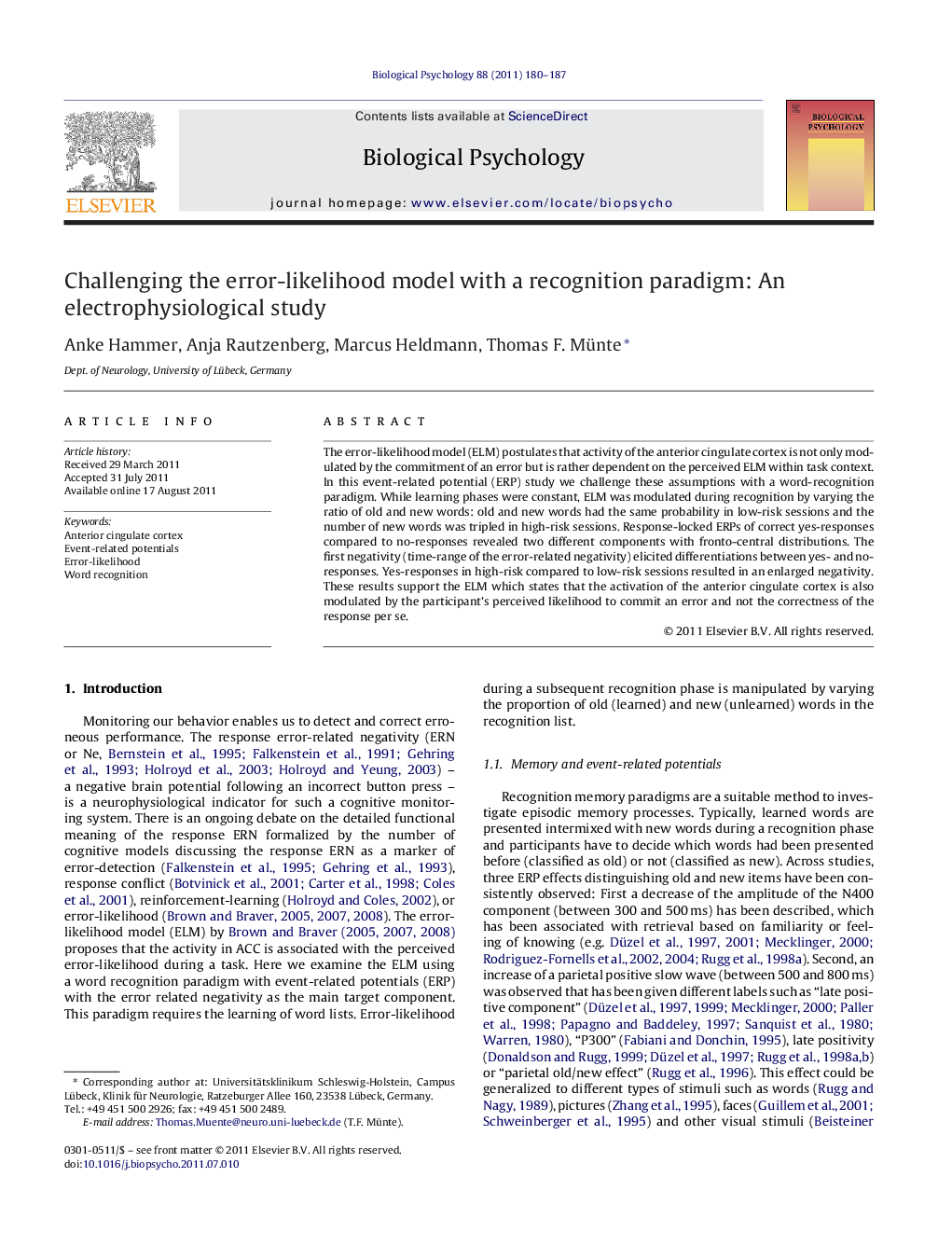| Article ID | Journal | Published Year | Pages | File Type |
|---|---|---|---|---|
| 921118 | Biological Psychology | 2011 | 8 Pages |
The error-likelihood model (ELM) postulates that activity of the anterior cingulate cortex is not only modulated by the commitment of an error but is rather dependent on the perceived ELM within task context. In this event-related potential (ERP) study we challenge these assumptions with a word-recognition paradigm. While learning phases were constant, ELM was modulated during recognition by varying the ratio of old and new words: old and new words had the same probability in low-risk sessions and the number of new words was tripled in high-risk sessions. Response-locked ERPs of correct yes-responses compared to no-responses revealed two different components with fronto-central distributions. The first negativity (time-range of the error-related negativity) elicited differentiations between yes- and no-responses. Yes-responses in high-risk compared to low-risk sessions resulted in an enlarged negativity. These results support the ELM which states that the activation of the anterior cingulate cortex is also modulated by the participant's perceived likelihood to commit an error and not the correctness of the response per se.
► The error-likelihood model was challenged with a word-recognition paradigm. ► Response-locked components were driven by stimulus-type and risk manipulation. ► The given results support the assumption of the error-likelihood model.
